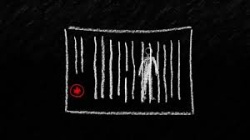Secret trial
 | |
| Interest of | Saleyha Ahsan |
| Characteristic of dictatorships, already happening in the UK, coming soon to a nation state near you...? | |
A secret trial is a legal proceeding to which the public are not granted access, either in whole or in part. This has long been agreed to be characteristic of autocratic governments such as military dictatorships. Nevertheless, under the pretext of the "War on Terror", it is being introduced for "terrorism" trials in "democratic" nation states such as UK. More nation states are expected to follow introducing them on grounds of "national security".
UK
“No free man shall be taken, or imprisoned, or dispossessed, of his liberties or be outlawed, or exiled, or in any way destroyed excepting by the legal judgment of his peers, or by the laws of the land.”
(1215) [1]
Since Magna Carta England has required that trials not be held in secret. However, post 9-11, the UK has been introducing special legislation to circumvent this centuries long established tradition, arguing that this is vital for the sake of "national security".
2008
In 2008, parts of a murder trial were held in secret at the Old Bailey on grounds of "national security" - but the defendant was named and large parts of the case were heard in public.[2]
R v Incedal and Rarmoul-Bouhadjar (2014)
In October 2014, the most secret trial since World War Two was held in the UK, termed by the BBC a "unique case". The Crown Prosecution Service had argued that - for undisclosed "national security" reasons - the trial might have to held completely in secret, or not at all. In the event, large parts were held in secret. A few hand picked journalists were admitted into several sessions - but were expressly prohibited from reporting them.[3]
2017
In 2017, the [[]] moved to prevent public access to the case of Abdel Hakim Belhaj and Fatima Boudchar against senior MI6 officer, Sir Mark Allen,
USA
The USA has exploited the anomalous status of Guantanamo Bay for disposal of unwanted prisoners, and the government is careful to refer to them as "detainees" rather than "prisoners" to assist in stripping them of due process. Under the NDAA 2012, secret trials are no longer needed in the USA, since trials themselves are no longer needed; that act grants the government the right of indefinite detention without charge in cases of suspected "terrorism".